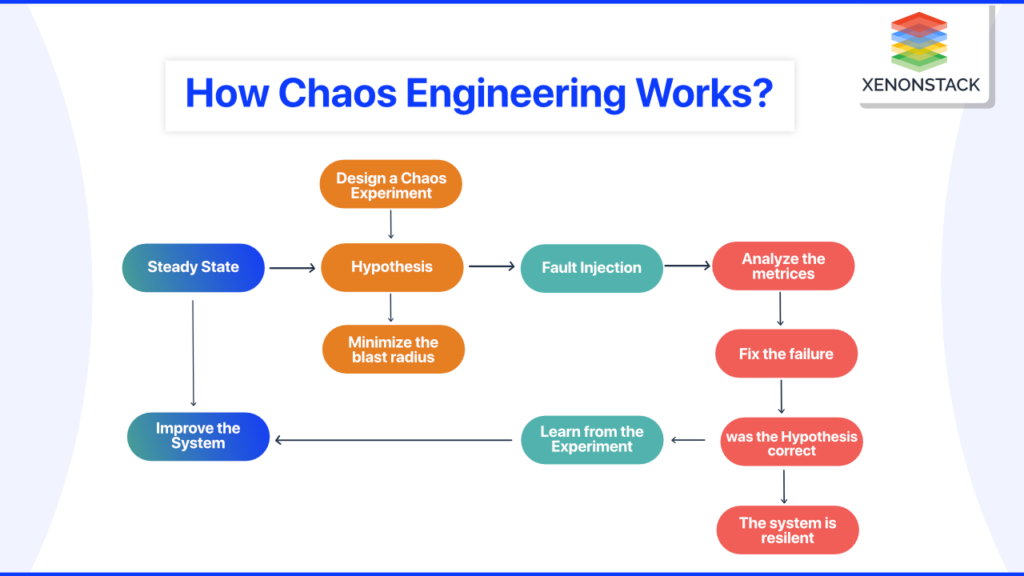Why is Chaos Engineering important? Conf42 Chaos Engineering Conference 2023
Have you heard about the Chaos Engineering concept in the software development field? Even if you haven’t, don’t worry since chaos engineering is a relatively new discipline of software engineering that is gaining popularity as a way to ensure resilient software systems. It involves intentionally introducing faults into a system to test its ability to recover and identify weaknesses in the system design. This new method allows us to assess the impact of system failure and detect potential problems before they cause significant issues. And who wouldn’t like to be a ‘fortune teller’ regarding software efficiency?
By introducing chaos engineering into our engineering practices, we can create more reliable systems and gain confidence in our system’s ability to handle unexpected events. As the world moves towards more complex and interconnected systems, chaos engineering allows us to manage our system’s reliability and availability proactively.
What does Chaos Engineering consist of?
As I mentioned above, Chaos engineering is a methodology for testing and improving the resilience of complex systems. It involves deliberately introducing failures or other types of disruptive events into a system to observe how it responds to them, identify weaknesses, and improve its ability to withstand unexpected events. Chaos engineering is typically applied to large-scale distributed systems, such as those used in cloud computing, where there are many interconnected components and potential points of failure. This method can involve various techniques and tools, such as randomly shutting down servers, introducing network delays or packet loss, or simulating a sudden increase in traffic.

Why has Chaos Engineering become so important?
The ultimate goal of chaos engineering is to help ensure that complex systems can withstand unexpected events and function reliably despite disruptions or failures. By recognizing vulnerabilities and flaws ahead of time, engineers can proactively improve the system’s strength and guarantee it can keep running despite unforeseen occasions. This method is essential to avoid outages and other service disruptions, which can be expensive financially and damage an organization’s reputation.
Chaos engineering likewise offers a way to inspect the system’s ability to recover from malfunctions and other disturbances, which can be critical in scenarios where downtime or service disruptions are not feasible. By intentionally introducing chaos into the system, engineers can better comprehend how it works and how it answers to different sorts of breakdowns and use this understanding to elevate its overall strength and dependability.
Conf42 – Chaos Engineering Conference 2023
If you want to know more about this concept, look no further. On February 16th held, Conf42 – chaos Engineering 2023, based in UK London, in an online format conference, with different IT professionals, describing this new concept in depth and presenting study cases. (Watch the premiere of the event here)
Some keynote speakers invited to deliver talks regarding chaos engineering in software development that we can mention are:
Benjamin Wilms, Co-Founder & CEO at Steadybit, with a talk about systems’ stability and reliability. He presents how to deal with software conditions proactively to improve your reliability and keep your customers happy.
Pablo Chacin, Technical Lead Chaos Engineering at Grafana Labs / K6, with a talk on continuously including reliability as part of the testing process and how we have to shift “right” into the chaos engineering concept.
Uma Mukkara, Head of Chaos Engineering at Harness, talked about how Chaos Engineering has been helping SREs improve resilience and introducing the details and best practices of the developing pattern by using chaos experiments in CD pipelines.
Other names present at this conference that held more in-depth talks about the chaos engineering methodology were: SHAY LIN, Samuel Baruffi, Jintao Zhang, Chris Nesbitt-Smith, Tomasz Manugiewicz and many more.
Every talk and lesson can be accessible by subscribing to the main web page of the conference.



